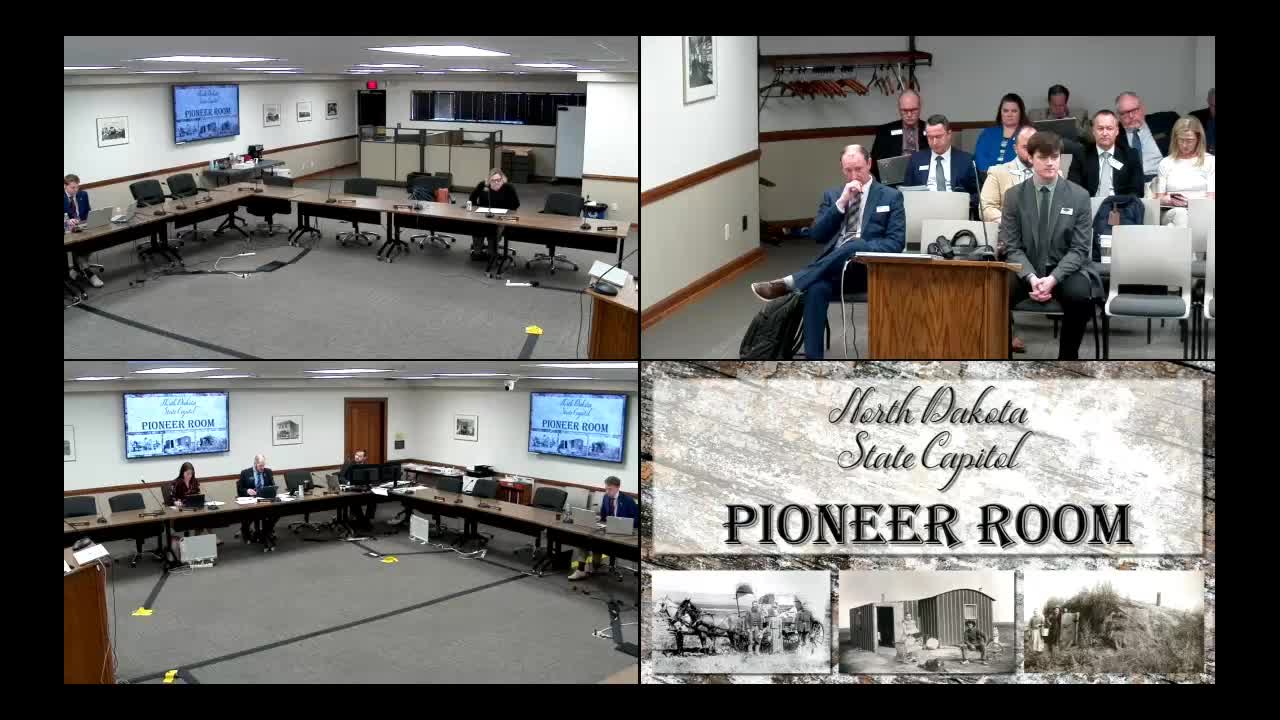North Dakota subcommittee debates 340B reporting language, study option and where to house data
Get AI-powered insights, summaries, and transcripts
Subscribe
Summary
A legislative subcommittee discussed three options for adding 340B and health-care price-transparency reporting to an insulin bill, weighing a full reporting requirement, a narrower reporting-plus-study approach, and a study-only path; officials raised questions about authority, data analysis, confidentiality and potential budget needs.
A legislative subcommittee on health policy debated whether to add reporting requirements about the 340B drug-pricing program and broader price-transparency measures to an insulin bill, or to delay mandatory reporting and instead commission a study.
Representative Dobrevitch, a sponsor of study-language alternatives, told the panel there are three possible directions: adopt the legislative council draft requiring broad reporting from hospitals, pharmacy benefit managers (PBMs), insurers and drug manufacturers; adopt reporting limited to covered entities while moving PBM/insurer/manufacturer reporting to a study; or adopt a study that examines every element of the draft before requiring reporting.
The options differ in timing and scope. The legislative council draft in the packet sets staggered starts and reporting deadlines: “Beginning 05/01/2027, published annually the department's website, a summary of the information reports received. Beginning 06/01/2027, report annually to the legislative management, a summary of the findings or reports received,” and it applies to health-care facilities beginning 01/01/2026 and to drug manufacturers, health insurers, and PBMs beginning 01/01/2027. Representative Dobrevitch said the study option would keep the same substantive questions but delay initial reporting until lawmakers decide how to use the data.
Officials and stakeholders told the subcommittee they support clearer direction about who would collect, analyze and publish the data. Brendan Joyce, Medicaid Pharmacy Director for the Department of Health and Human Services, said, “It's one thing to collect data. But then we would really need to know what it is that's expected for us to do with the data.” Joyce added that the 340B program intersects with Medicaid accounting but that HHS “would not disagree with this being housed somewhere else.”
John Arnold, deputy insurance commissioner, told the subcommittee the insurance department could collect some of the proposed reports but warned the draft needs explicit statutory authority and confidentiality safeguards. “Another thing came to light about, especially collecting data from the providers, needing to be, sure that there's clear authority, in the bill, for the department to or whichever department to collect that data, clear confidentiality guidelines as well,” Arnold said, citing lessons learned from a prior health-care study.
Arnold also flagged a pending PBM bill, 1584, which would grant the insurance department authority to regulate PBMs and could overlap with the reporting proposed in the insulin bill. He said the department and its budget are already in appropriations review and that analysis of datasets could require additional consultant funding: “there would be some additional cost with having a consultant to look at the data and put it together. And so that means if we do pass some sort of version of this bill, then we're facing a situation where, we would likely have to get something put into the insurance commissioner's budget.”
Mike Schwab of the North Dakota Pharmacists Association said the PBM bill contains some reporting but that the proposal before the subcommittee appears more comprehensive. “I think what you have in front of you is probably a little bit more comprehensive,” Schwab said, urging the committee to ensure the different data sources can be used together to “put the puzzle together.”
Lawmakers discussed process and timing rather than taking a formal vote. Several legislators, including Representative Belinski, favored preparing a combined or refined bill and bringing multiple options to the full committee for consideration. Representative Belinski said presenting both versions would mirror how the committee handled previous complex measures. Representative Valencia suggested adding study language to the end of the reporting amendments to ensure the committee also identifies the best department to analyze and publicize results.
The subcommittee did not adopt any motion during the meeting. Members directed staff and sponsors to refine the draft(s) and prepare options to bring to the full committee next week or to consider referral to delayed bills, with attention to statutory authority, confidentiality safeguards, potential costs for consultants or budget adjustments, and the interaction with SB 1584 (the PBM regulation bill). The meeting ended without a vote.
The discussion combined references to reporting content, statutory authority and implementation logistics rather than resolving whether the final bill will require immediate reporting or a study-first approach. Members said they would work over the weekend to merge language and return with one or more options for the full committee to consider.
